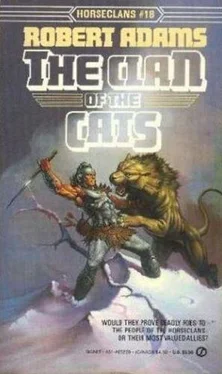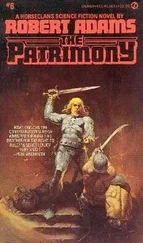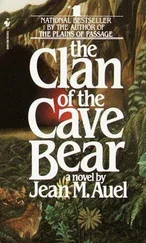Milo was out of the upper bunk in James Bedford’s disaster shelter within split seconds and stamping into his boots even as he pulled on his jacket and mentally nudged into wakefulness the other nomads who had occupied the other bunks. Once more thankful for the infiniestimally small periods of time necessary to exchange thoughts and convey messsages in nonspeech mental communication, he explained the situation, reconfirmed his aspirations for both the nomad clans and the cats, then gave his orders that the men should stand ready, awaiting his summons.
Dik Esmith snorted disgustedly aloud while beaming silently, “Ha, Bahb Linsee must be snoring atop the tower rather than keeping watch to not have seen two animals that large not only approach but enter these ruins.”
“Not so,” beamed Milo before one of the Linsees could arise in anger to the insult. “Not only must you recall that this night is one of scudding clouds over a moon far from full and bright and that the coats of these cats blends in very well with snow, but also considered that even while injured and hobbling around on three legs, the nursing cat down there managed to steal away a dead deer—a full size, full-grown, adult doe—from under the very noses of us all in broad daylight. Are there no existing circumstances under which you Esmiths and Linsees will cease to pick at and mock and attempt to anger each other like unto so many brattish toddlers? I serve you all fair warning: if your constant, petty, senseless bickerings cost me and the clans the friendship of these cats and their ilk, you will be long in forgetting it and will regret it for the rest of your lives.”
Leaving them all abashed, he strode from the body-heated room out into the chill of the outer chamber, taking one of the gasoline lanterns with him. Within the den area, amid the thick ammonia reek of cat, the cold was bone-deep, but the sinew-cracking effort of raising the ancient steel door on its warped tracks served to suffuse his body with some warmth.
Cued by the recuperating mother cat, he stepped well back from the mouth of the passage and waited. Following a flicker of movement in the dark depths of the low, narrow tunnel, a big, feline head appeared, its three-inch cuspids glinting in the glaring light of the lantern. The yellow-green eyes fixed upon him and he felt the peculiar, familiar tickle in his brain of a new mindspeak.
Lightly, warily, the first cat dropped the two feet from out the tunnel and was followed by a second, this one larger—bigger, bulkier, cuspids thicker and longer by at least a half-inch. Milo had wondered about sexual dimorphism in these strange beasts; now he knew—the male was a third again the size of the female which had led.
“The Mother says that you can communicate with cats, yet you are certainly not a cat, two-legs, so how can this be so?” asked the newcome feline female, both of them wire-tense, obviously ready to either attack of flee, as they judged best.
“This one cannot say how it is so. cat-sister,” replied Milo. “Nonetheless, it is so, as you and your mate can now tell. Nor is this one the only two-legs who can so communicate to those of your kind; within another, smaller den here are other two-legs who have communicated with the Mother and the cubs and can do so with you and your mate, if allowed.”
Slowly, cautiously, the female stalked in a circle around Milo, drawing infinitesimally nearer with each circuit, while the huge male crouched ready to leap upon the two-legs at the first sign of aggression.
Even while stalking, the smaller cat beamed, “The Mother says that you and the other two-legs have hunted and brought back much meat for her and the new cubs. She says that you slew many, many wolves with your great, long, shiny claw. The Mother says that you and at least one other two-legs did things that took away most of the hurting from her two forepaws. You do not smell very good. You smell more like a wolf than you do like a cat, though not really like a wolf, either. Are you of the breed of two-legs that go about sitting upon the back of fast-running, stupid, hornless four-leg grass-eaters and hurl sharp-pointed sticks at cats and all other ones?”
“The two-legs smells more like a bear than like a wolf,” put in the male cat. “Or more like a bear and a boar, together. He does not eat just meat, this cat thinks, yet he is not really a prey-beast, either. What are you, two-legs?”
“Quite true,” agreed Mio, readily. “My kind consume both flesh and plants, just as do the bear and the boar, and so it is understandable that our scents would be similar. Yes, my kind do ride upon fast-running four-legs and sometimes hurl sticks with sharp points at beasts of many kinds. We also keep together large numbers of other four-legs grass-eaters—these of some three kinds, all with horns; we keep them for their milk and their meat and for other things useful to us. And we guard them closely from cats, bears and wolves, using to help us guard them four-legs much like wolves but larger and fiercer.
“As to what I am, I and my kind, we are creatures who would be friends and allies of your kind of cats. We would join with you in keeping our mutual bellies filled always, in protecting kittens and cubs of both our kinds. I will freely admit that I do not know if it would work out, if it can be done; but such an alliance would benefit both two-legs and cats in many, many ways, and I would be more than willing to try to make such an arrangement work.”
“Perhaps we should just kill him and see if he tastes as foul as he smells?” the female half-questioned the waiting male.
From out the darkness of the den area, the nursing cat came hobbling on her still-healing legs. “Then you must kill this cat, too,” she snarled. “This two-legs has cared for me and my cubs, has hunted for us all and has protected us from the wolves when this cat was too hurt to do so herself. Were he a cat, he now would be my mate, but mate or not, cat or not. I will stand by him in any fight.”
And also from out the darkness of the den-area came stalking, stiff-legged and as threatening as a bristling, snarling, thirty pounds of cub could make himself appear, Killer-of-Two-Legs beaming, “And you must kill this cat, also … if you can.”
James Bedford had been aware that his original hotel reservations had been canceled and that new reservations for him had been booked at a security hotel in the greater Miami area, but it had not been until he actually arrived that he had become aware that the particular security hotel was the Jupiter Offshore Resort Hotel—unreachable save by air, expected surface vessel or the undersea-rail system.
As another VIPSS copter dropped down toward the landing pads atop the spreading hostelry, Bedford regarded the overt armaments placed here and there ready to repel hostile visitors—whether airborne or seaborne—and wondered just how much good any of them would do in event of a hurricane, not even to mention such other natural disturbances as tsunamis, tornados or earth tremors. At that moment, he really yearned for the safe, almost uninhabited isolation of the far-western mountains, where he could go about unarmed without fear or bodyguards.
To the young man beside him—virtually a clone of the one who had flown with him from his uncle’s home to the D.C. airport somewhat earlier in the day—he said, “I wish I could’ve been put upon the mainland, closer to the main business area. These offshore things give me the willies, especially down here in the heart of the hurricane belt. How many were lost back in ’oh-one, when the Kitty Hawk Offshore went under?”
The man shrugged and flitted a brief smile of the kind that seemed to be a mark of his profession—boyish, charming, very reassuring. “You should not worry yourself, sir. Remember, the regrettable disaster of which you speak—the Kitty Hawk thing—that complex was one of the first of its kind built, and it had not, it was subsequently discovered, been properly maintained, not been renovated to keep it abreast of modem technological advances, as it should have been … as it would have been, had my service been connected with it.
Читать дальше












